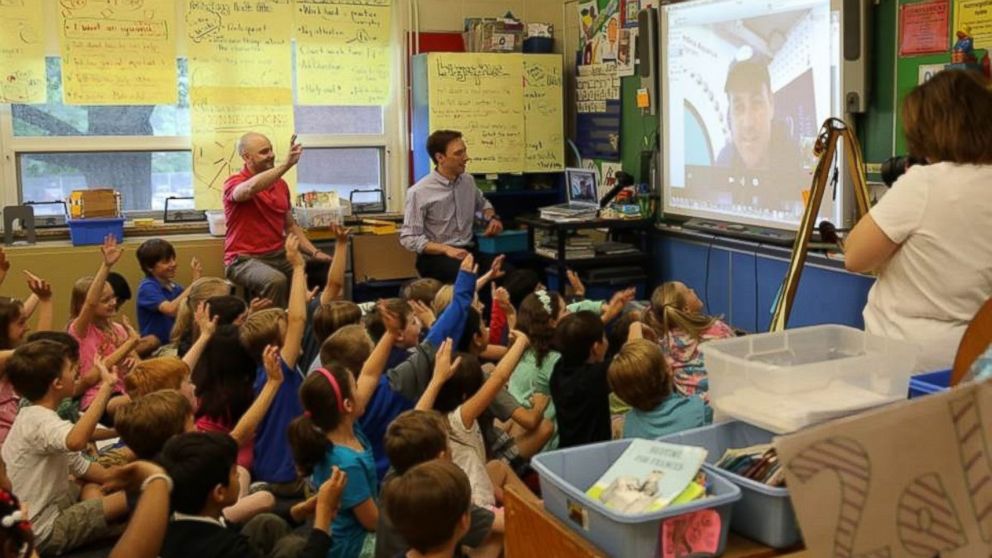Your Child's Next Field Trip May be a Virtual One
No permission slips or brightly-colored T-shirts needed.

— -- Your child's next field trip may not require a permission slip or a brightly-colored t-shirt that matches his classmates. It may not require any traveling at all, and yet he or she might be interacting with people and places on the other side of the world.
Skype in the Classroom uses technology to bring students -- some less fortunate -- on virtual field trips or to hear lessons from noteworthy people in various career fields. Classrooms in the U.S. have interacted with classrooms in New Zealand; had the CEO of the Motion Picture Association of America as a guest speaker; and taken virtual field trip to Biscayne National Park to learn about sea turtles plus hundreds of other experiences.
The number of teachers utilizing the technology in their classrooms is growing. Last year, 25,000 teachers became active members of Skype in the Classroom, a 30 percent increase from the year prior.
For teachers like Gina Felton, it's the only way her students can "travel." Based in Mondamin, Iowa, Gina is the only 5th grade teacher at the West Harrison Community School, a school that covers a landmass of 247 square miles with 329 students ranging from preK-12th grade. Almost 85 percent of the students are on the reduced and free lunch program, and some take a 45 minute bus ride to get to school in the morning. There's no extra funding and Gina’s students' sole option for a field trip was a nature hike at a local reserve.
Since becoming a Skype in the Classroom member, in one year her students have played "Mystery Skype," a geography game that links two geographically distant classrooms, with over 100 classes. The students learn by asking questions about culture, climate and customs and ultimately guessing where the other class is located.
"My kids used to think they had nothing special or interesting to offer," said Felton, "but they have learned through meeting other students that they are unique and they have experiences others are interested in learning about, even from Mondamin, Iowa where the closest grocery store is one hour away. They are proud of our uniqueness and walk a little taller now.”
There are 9,300 lessons offered on Skype in the classroom include teacher to teacher classroom collaboration, guest speakers and virtual field trips. All the programs are free.
Mike Soskil, a teacher from Newfoundland, Pennsylvania who won the 2012 Presidential Award for Excellence in Math and Science Teaching, has used the program to create peer-to-peer math lessons with students in Nairobi, Kenya, collaborate with students in India to put together awareness campaigns to stop child labor in Asia and Africa, and even learn about weather from meteorologists and NASA scientists.
“My 4th grade daughter’s excitement for school went through the roof after using Skype in the classroom to connect with other students in Kenya," said Brenda Jantzi, a mom from Greentown, Pennsylvania. "She always told me that she wanted to help others when she grows up, and this allowed her to feel like she’s doing it now.”




